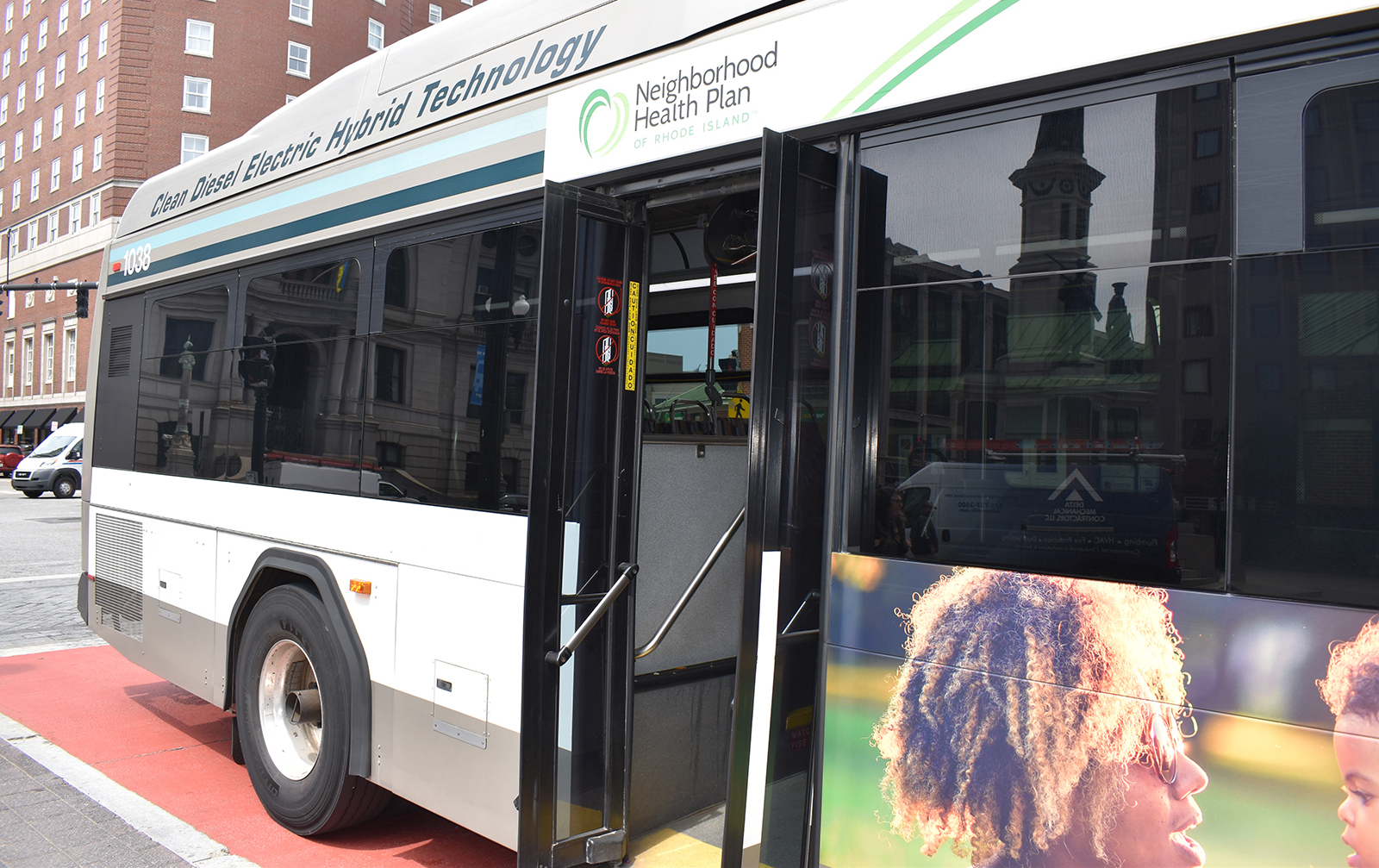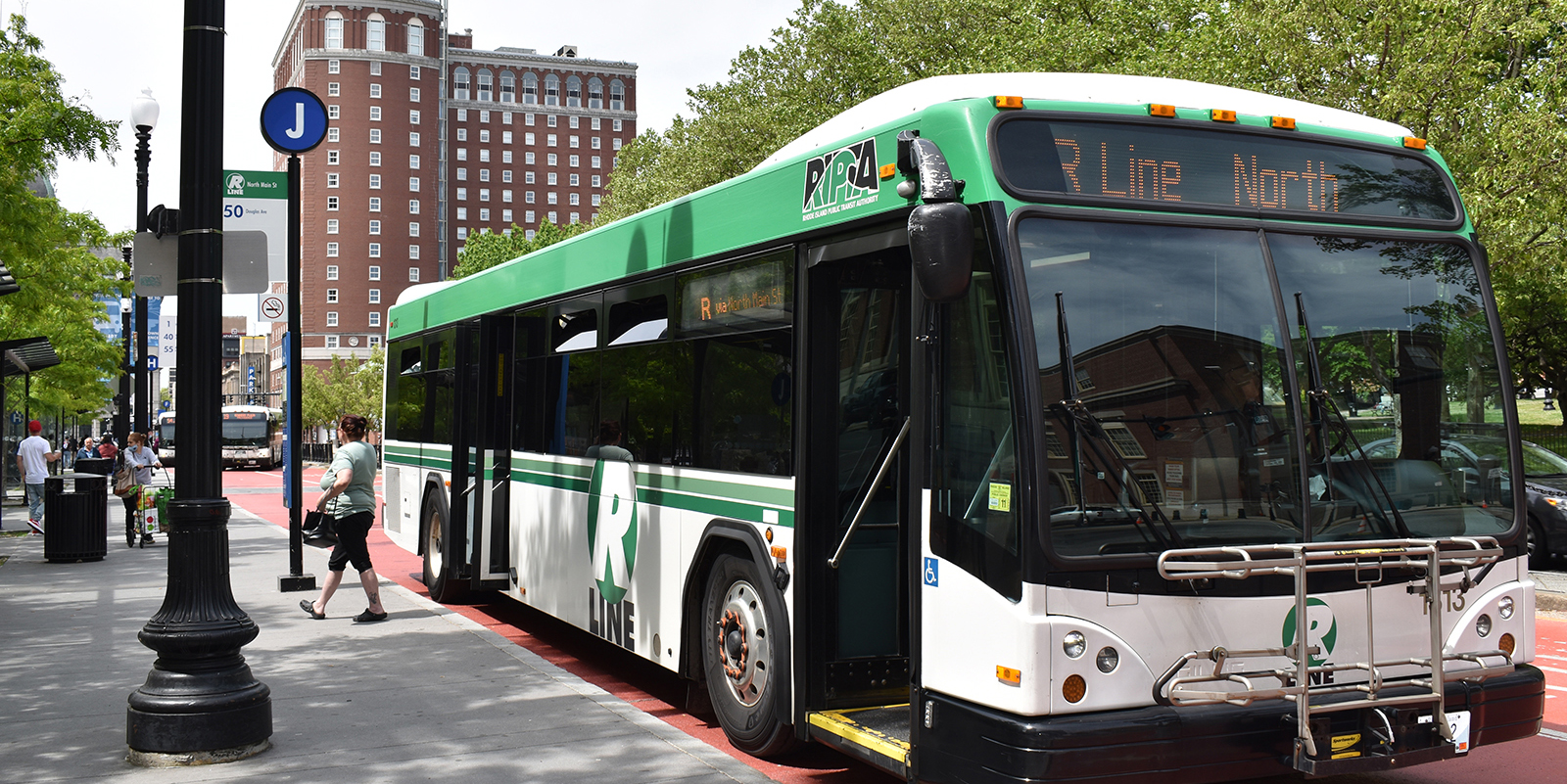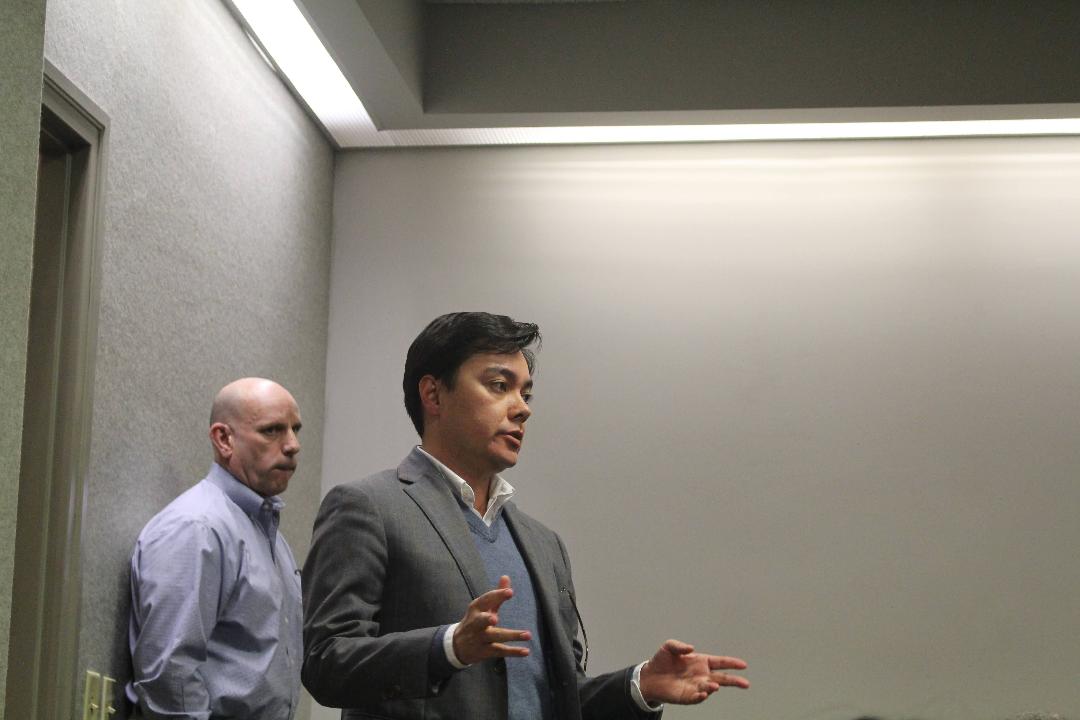Supporters: O’Grady Bill Repairs RIPTA Funding
May 4, 2013
PROVIDENCE — “Coming here does seem a little like déjà vu again,” said Abel Collins, program manager for the Rhode Island Sierra Club, articulating what many people at the hearing for the Public Transit Investment Act (H5073) were no doubt thinking.
The Public Transit Investment Act, nicknamed the “O’Grady Bill” after the bill’s sponsor Rep. Jeremiah O’Grady, D-Lincoln, aims to create a sustainable funding model for the Rhode Island Public Transit Authority (RIPTA), by redirecting vehicle registration and license fees from the General Fund to a trust fund specifically for the Department of Transportation (DOT) and RIPTA.
RIPTA currently is funded by a gas tax that yields declining returns and doesn’t generate enough money to maintain the agency’s services. As a result, RIPTA faces a yearly multimillion-dollar deficit.
The O’Grady Bill has been introduced in some form for five consecutive years, but has failed to gain traction at the Statehouse despite widespread public support.
During an April 30 hearing, the House Finance Committee’s meeting room reached capacity, forcing additional attendees to spill into the hallway, where a TV streamed the action live. More than 20 representatives from environmental organizations, health organizations, advocacy groups for people with disabilities and the elderly, and a variety of other groups and individuals provided testimony in favor of the O’Grady Bill.
Two representatives from the building industry spoke against the bill.
Those testifying in favor of the bill provided a diverse spectrum of reasons for their support. A representative from AARP RI focused on the crucial role buses play in facilitating the mobility and independence of aging Rhode Islanders.
Kathryn Franklin of WellOne Primary Medical and Dental Care noted the disproportionate negative effect insufficient public transit has on low-income people whose options are limited by where the bus can or can’t bring them. Molly Clark of the American Lung Association said public transit reduces air pollution and respiratory illnesses such as asthma.
Lisa Petrie, speaking on behalf of the Unitarian Universalist Congregation of South County, made the case for the environment. According to Petrie, 40 percent of Rhode Island’s greenhouse gas emissions come from the transit sector, mostly from cars. A well-funded bus system, Petrie said, would reduce the number of drivers on the road and lessen the state’s carbon footprint.
Dan Baudouin, executive director of the Providence Foundation, spoke about public transit and the economy. According to Baudouin, when people relocate they consider which communities and states have the best public transportation. Similarly, he said, companies choose places with strong transit when starting up or relocating.
“Transit moves the economy,” he said.
Michael Sabitoni, president of the Rhode Island Building and Construction Trades Council, opposed the O’Grady Bill. Sabitoni claimed the bill would create a hole in the General Fund, divert money from the DOT and create additional bureaucracy in state government.
Bill supporters refuted those claims. According to O’Grady, the bill’s author, a hole in the General Fund already exists; it’s just masked under RIPTA’s annual line item.
Jerry Elmer, co-chair of the Coalition for Transportation Choices, and John Flaherty, director of research & communications at Grow Smart RI, both testified that DOT’s budget would be improved if the O’Grady Bill were passed.
Under the O’Grady Bill, more money is set aside for transit agencies from license and registration fees. Currently, DOT gets 100 percent of the money set aside and RIPTA gets none. Under the O’Grady Bill, DOT would get 65 percent and RIPTA would get 35 percent. Despite the reduction in DOT’s percentage, the DOT would still receive more money than it currently receives because of the increased pool of money being set aside, according to bill supporters.
As Elmer put it, “RIPTA gets something, and DOT gets more.”
Elmer did concede that the O’Grady Bill doesn’t increase DOT’s budget as much as some other proposals, but said those other proposals haven’t been crafted into bills that the Legislature can act on.
The bill was held for further study.
Rally for RIPTA
Two days after the hearing, supporters of the O’Grady Bill rallied in the Statehouse rotunda. About 50 people amassed on the stairway leading to the House Chamber, many holding handmade signs.
“For too many years we have funded our transportation system unsustainably,” O’Grady told the assembled crowd. O’Grady called for a “safe, sustainable, reliable and predictable” funding model for RIPTA and said one key to competing with other states in the Northeast Corridor was a competitive transit system and reliable roads.
Warwick Mayor Scott Avedisian, chairman of RIPTA’s board, noted that ridership increased 10 percent from 2011 to 2012, and that RIPTA had cut all the waste from its budget. Avedisian said the next step needs to be to invest in RIPTA so it can better serve the needs of Rhode Islanders.
RIPTA’s board has voted unanimously in favor of the O’Grady Bill.
House Speaker Gordon Fox, who initially agreed to speak at the rally, didn’t attend due to an unexpected obligation. Elmer instead read a previously completed questionnaire from Fox that listed the speaker’s top priorities as job creation, marriage equality and “the creation of a predictable funding source for RIPTA.”
“We know that Band-Aid approaches do not work,” said Elmer referring to the stopgap measures taken in recent years to deal with RIPTA’s funding crisis. “The O’Grady Bill is not a done deal and that means that you have work to do this session.”
He called on rally attendees to contact the members of the House Finance Committee, Speaker Fox and their local representatives. “Tell them there is only one bill that creates a predictable funding source for RIPTA,” Elmer said, “and that is the O’Grady Bill.”
Categories
Join the Discussion
View CommentsRecent Comments
Leave a Reply
Your support keeps our reporters on the environmental beat.
Reader support is at the core of our nonprofit news model. Together, we can keep the environment in the headlines.
We use cookies to improve your experience and deliver personalized content. View Cookie Settings




Lets not forget Ripta is also funded from fares by people using the system, so getting more passengers can also help reduce the deficit. There are a lot of ways to do this including better marketing, labor unions asking for employer support of the Ecopass program, convincing friends and colleagues to try transit if appropriate, locating events where there is good transit access, posting schedules widely, and more. All this only helps with the deficit, it makes transit a stronger tool to help the environment and economy and strengthens the political support for fixing the funding problem.